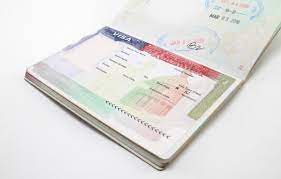
The Schengen Visa digitization application has been announced by the European Union. Now that the Schengen visa is available digitally, this is the ideal moment for anyone considering a vacation to Europe. The good news has made holidaymakers pleased.
Through Schengen Visa digitization, the new visa regulations will upgrade, streamline, and unify the visa application process. Expediting visa applications and lowering expenses for both applicants and issuing authorities, will help citizens of third countries who are requesting Schengen visas as well as the EU Member States handling these requests. These new regulations will also reduce the hazards connected with actual visa stickers. Digital visas have fewer risks associated with them, even with the recent addition of security elements.
If you are planning to Schengen countries for tourist or business purposes, then you are at the right place. Take consultation with our experts
On March 29, 2023, the EU Council’s proposal to digitize the Schengen visa application process was approved by the ambassadors of the EU member states. The new program will allow document submission and online permit submission for entry into the EU. The digital visa will replace the traditional visa sticker on the traveler’s passport.
With the new approach, the EU hopes to increase the effectiveness of the visa application procedure while also enhancing the security of the Schengen region.
The Council of the European Union has officially adopted the relevant regulations for system development, providing a status update on the eagerly anticipated of the Schengen Visa digitization application
process. The European Parliament had already approved the guidelines in October 2023.
The Advantages of Online Visa Applications
The option to apply for a Schengen visa online will make the process of acquiring this entry permission much simpler. Travelers will not have to go to a consulate to submit paperwork and acquire a visa, which will relieve pressure on national governments. The new process will also eliminate the possibility of losing, stealing, damaging, or falsifying the visa sticker.
Reasons for the implementation of the digital visa application system
The development of information technologies allows for the streamlined and effective processing of visa applications for national authorities as well as easier application processes for applicants, which is why the EU Commission proposed in April 2022 to digitize the visa process. The COVID-19 pandemic was another cause, slowing down visa processing and highlighting the need for more computerized procedures.
What date will the new system go live?
The Council should move forward with the process of deliberation and ultimate acceptance of the program draft with the European Parliament to approve the new system.
How will the new application process for a Schengen Visa digitization operate?
The program’s idea states that a unique online platform would be created to issue visas. All Schengen visa applications will be accepted through this portal.
Even with these modifications, first-time applicants, people with a fresh travel passport, and people whose biometric data has expired will still require in-person visa appointments.
Through this website, applicants will pay government fees and digitally submit information and documents (including a declaration of their intended country of entry and the countries in which they would predominantly remain). The portal will send the application status and the nation handling its processing to applicants.
The system will automatically forward applications to the appropriate country visa systems based on the request made by the tourist. If you are traveling to multiple Schengen countries, the system will automatically identify which country needs to issue the visa, depending on the duration of stay. If the applicant has to seek a visa in a particular nation for their trip, they can specify this in their application.
After completing the paperwork, the portal will also display the decision to grant a visa. The advances state that visas will be provided electronically as two-dimensional barcodes signed using cryptography.
Crucially! Certain foreign nationals will still need to show up at the consulate to obtain a visa if their biometric data has expired, if they are obtaining a visa for the first time, or if they have obtained a new travel document.
Digitalization will make it simpler to apply for a Schengen visa and increase the security of the visa itself:
Applicants for visas, regardless of the Schengen nation they wish to visit, will be able to apply for a visa online and pay the visa fee via a single EU website;
Particularly when the applicant plans to visit multiple Schengen countries, the platform will automatically determine which Schengen country is in charge of reviewing the application;
The platform will give applicants access to the most recent information on Schengen visas for short stays, along with all the details they need to know about the requirements and processes (such as the necessity for an appointment to obtain biometric identifiers or supporting documentation).
First-time applicants, those whose biometric data is no longer valid, and those with a new travel document would only need to make in-person appearances at the consulate to collect biometric identifiers.
The visa will have modern security elements that make it more secure than the current visa sticker; the new system will guarantee that it always upholds fundamental rights.
The European Parliament and the Council will now debate the proposal from the Commission. Following that, member states will have five years to transition to the shared online visa system. The platform’s development might begin in 2024 and go live in 2026, depending on how the co-legislators agreements turn out. All Member States might use the platform by 2031, taking into account the five-year transition period.
